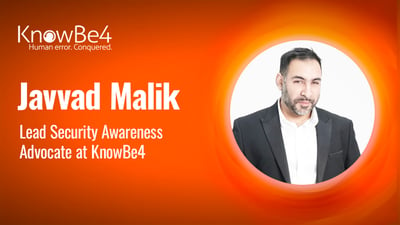 The UK's National Cyber Security Centre (NCSC), recently shared its findings on how AI might reshape the cyber landscape. In two separate posts, the NCSC is warning that the global ransomware threat is expected to rise with AI.
The UK's National Cyber Security Centre (NCSC), recently shared its findings on how AI might reshape the cyber landscape. In two separate posts, the NCSC is warning that the global ransomware threat is expected to rise with AI.
It appears that while AI beckons with one hand, it wields a knife in the other. On one side, we have AI's potential to supercharge economic growth, scientific breakthroughs, and societal benefits. On the flip side lurks the specter of security risks posed by AI's misuse. It's a classic cybersecurity tale of innovation and threat walking hand in hand, or in this case, code intermingled with malice.
The NCSC's report serves as a crystal ball into the near future, speculating on how AI could upscale the volume and impact of cyber threats. It's not just about criminals upgrading their toolkits with AI; it's about the uneven battlefield it creates. Some actors will harness AI to perfect the art of digital deception, making phishing attacks and social engineering efforts more convincing than ever. Imagine a world where every email feels like it's genuinely from your boss, colleague, or a trusted third party.
But it's not all doom and gloom. The report reminds us that as AI emboldens the attackers, it also empowers the defenders. Enhanced detection, improved cybersecurity practices, and faster triage of threats are all listed in the benefits column.
However, technology, even advanced technology like AI, is still a tool. While it can improve the quality, speed, and delivery of social engineering attacks, the underlying technique remains relatively unchanged. Regardless of the grammatical and spelling accuracy of an email, one should still ask questions, such as whether this is an email which is expected, or from someone new, is it asking you to undertake an action that you don’t usually do, or does it instill a sense of urgency, fear, or panic?
The rate at which AI is being weaponized means that not only can it enhance individual attacks, but can coordinate a multi-channel attack against several people all at the same time.
The key takeaway? We're all in this together—state actors, cybercriminals, hacktivists, and the cybersecurity community. AI is democratizing cyber capabilities at an alarming rate, lowering entry barriers for novice actors while giving seasoned players a more lethal arsenal.
What does this mean for us, the cybersecurity professionals, enthusiasts, and everyday internet users? Vigilance created through continuous security awareness and training is non-negotiable. The AI-enhanced threats are not a distant future scenario; they are knocking on our digital doorsteps. We must share knowledge and resources, and work towards building a culture of security.
After all, cybersecurity is not just about protecting bytes and data; it's about safeguarding actual people and livelihoods.
As we marvel at AI’s potential to redefine every facet of our lives, we must not lose sight of the shadows it casts.
 Here's how it works:
Here's how it works:




